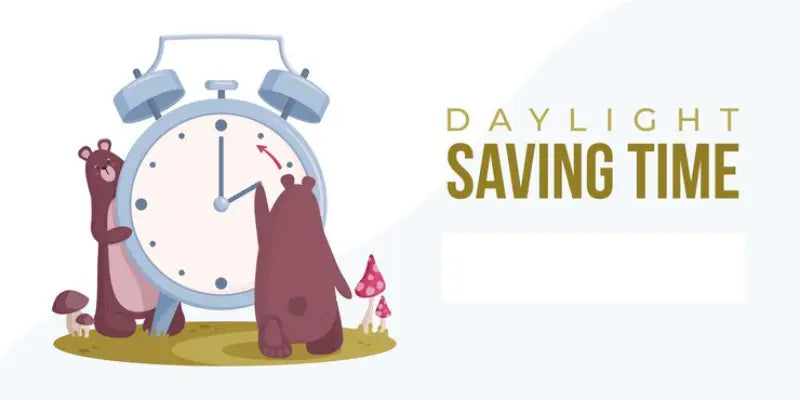
How Much Sleep Does a Teenager Need?
When it comes to sleep, teenagers are particularly vulnerable. Rising hormones and the stresses of their growing years can make getting a good night’s sleep difficult. However, not getting enough sleep can have serious consequences for your health, both now and in the future. In this blog post, we will explore the importance of sleep for teenagers and the best ways to get the most out of your slumber. From improving your focus and memory to preventing common health problems, read on to learn all you need to know about teenage sleep habits.
What are the Health Risks of Insufficient Sleep?
There is a growing body of research that suggests insufficient sleep can have negative impacts on your health, both physically and mentally. Here are five health risks of not getting enough sleep:
1. Higher risk for obesity and type 2 diabetes
It has been well-documented that people who get less than seven hours of sleep a night are at a higher risk for obesity and type 2 diabetes. Studies have shown that lack of sleep leads to an increase in the hormone ghrelin, which signals the body to eat more food. Ghrelin levels also rise when people are stressed or anxious, so having difficulty sleeping can also lead to increased weight gain and Type 2 diabetes.
2. Increased rates of heart disease and stroke
People who don't get enough sleep are also at an increased risk for heart disease and stroke. Studies have found that people who get less than six hours of sleep each night are almost three times as likely to suffer from a heart attack or stroke as those who get seven or more hours of sleep each night. The National Sleep Foundation reports that inadequate sleep is one of the leading causes of impaired cardiovascular function in the U.S.
3. Lower immune system function
Sleep deprivation has been linked with lower immune system function, which can make you more susceptible to colds, flu, and other infections. According to the American Academy of Sleep Medicine, insufficient sleep can also lead to problems regulating body temperature, which can make you more susceptible to hypothermia and frostbite.
4. Increased risk for Alzheimer's disease
Research suggests that people who don't get enough sleep are at an increased risk for developing Alzheimer's disease. Studies have found that people who get less than six hours of sleep each night are two and a half times as likely to develop Alzheimer's as those who get seven or more hours of sleep each night. The National Sleep Foundation reports that inadequate sleep is one of the leading causes of impaired cognitive function in the U.S..
5. Higher rates of depression and anxiety
People who don't get enough sleep are also at a higher risk for developing depression and anxiety. Studies have found that people who get less than six hours of sleep each night are almost three times as likely to suffer from depression as those who get seven or more hours of sleep each night. The National Sleep Foundation reports that insufficient sleep is one of the leading causes of disrupted nighttime sleep in adults aged 18-64 years old.
What are the Benefits of Getting Enough Sleep?
A good night's sleep is essential for overall health and well-being. It allows the body to heal and rejuvenate, improves cognitive function, keeps depression at bay, and regulates weight. As a teenager, it's especially important to get enough sleep. Teenagers are growing rapidly and their bodies are still developing. This means that they need more than what an adult needs to get a good night's sleep. Here are some of the benefits of getting enough sleep:
- Improved cognitive function: A good night's sleep helps the brain to function more efficiently. It improves concentration, memory, and decision-making ability.
- Heals and rejuvenates the body: Getting enough sleep helps the body to heal itself from any physical or emotional injuries sustained during the day. It also restores energy levels, giving you the strength to face tomorrow with renewed vigor.
- Keeps depression at bay: Lack of sleep can lead to feelings of fatigue and sadness, which in turn can make depression worse. A good night's sleep helps regulate moods and keep depressive episodes at bay.
- Keeps weight under control: Sleep deprivation causes people to eat more because they're not aware of how hungry they are feeling; this can result in weight gain over time if not dealt with properly."
How Do Teenagers Get more Sleep?
There are a few ways to get more sleep in a teenager, but the most important thing is finding a routine that works for them. Some tips for getting more sleep in teenagers include:
- Get enough sleep- A good rule of thumb is to get at least eight hours of sleep every night. This will help improve their moods and focus during the day.
- Create a bedtime ritual- Some people find it helpful to have a set bedtime routine every night, such as taking a bath or reading before bed. This will help create order in their lives and make sure they wind down before bed. Try using pillows that provide your kid ultimate comfort. One of the brands that we would like to recommend is Sleepsia. You can check them out here: https://www.sleepsia.in/collections/all-products
- Avoid screens late at night- Teens often use screens late at night to relax or wind down, but this can cause them to miss out on important sleep time. If they are able to disconnect from screens at least an hour before bed, they’ll be better able to get quality rest.
- Keep electronics out of the bedroom- One way to avoid screen time in the bedroom is to keep electronics outside of the room. This means TVs should be placed in another room and computers should not be kept on low or placed near the bed.
What are the Different Stages of Sleep, and What are They All About?
The National Sleep Foundation recommends that children and adults between the ages of 6 and 18 get 7 to 8 hours of sleep each night. Teenagers need even more sleep, usually 9 to 10 hours per night. There are three different stages of sleep:
- 1st Stage: This is the deep stage of sleep, during which you're unconscious and your body relaxes. It lasts for about 1-2 hours.
- 2nd Stage: This is the light stage, during which you're alert but still may be able to move around a bit. It lasts for 3-5 hours.
- 3rd Stage: This is the REM (rapid eye movement) stage, during which you're most active and dreaming occurs. It lasts for about 10 minutes or so.
Common things that keep teenagers from getting enough sleep
- Lack of sleep can have long-term consequences for teenagers, such as increased risk for obesity, depression, and anxiety.
- Teenagers need about eight hours of sleep per night on average to stay healthy. However, some teens may only get six or seven hours of sleep a night due to lifestyle choices (e.g., watching TV late into the night), schoolwork, and other activities.
- When adolescents don't get enough sleep, their bodies run on "sleep debt" which can lead to health problems later in life.
- Some common signs that a teenager is not getting enough sleep include fatigue, difficulty concentrating, irritability, and mood swings.
- If you notice that your teenager isn't sleeping well, try to encourage him or her to get more rest by setting reasonable bedtime curfew rules and providing opportunities for relaxation (such as reading or watching TV).
How Much Sleep Does A Teenager Need?
There is no set amount of sleep that all adolescents need, as each person’s body and sleeping habits are different. However, the Centers for Disease Control and Prevention (CDC) recommend that teenagers between the ages of 10 and 18 get at least nine hours of sleep each night. Here are some tips to help you get more sleep during adolescence:
- Set realistic bedtime goals: Trying to go to bed at 9pm every night may be unrealistic for most teenagers. Instead, aim for a more reasonable time such as 8pm or 7pm. This will help reduce the temptation to stay up late.
- Create a relaxing environment: Make sure your bedroom is dark, quiet, and cool. Avoid watching television in bed or using electronic devices before bedtime. Instead, read a book or take a bath.
- Challenge yourself throughout the day: While it’s important to relax after school, try challenging yourself during the day so you don’t feel too tired when it comes time to hit the hay at night. For example, try doing jumping jacks or push ups right before going to bed.
- Avoid caffeine and alcohol before bedtime: These drinks can keep you awake long after dinner time has ended. Try drinking water or herbal tea instead.
Conclusion
As teenagers grow and change, their need for sleep changes as well. Most teenagers need around nine hours of sleep each night, but this number can change depending on a teenager's age, activity level, and stress levels. If your teenager is generally healthy and adheres to a regular sleep schedule, you may not need to worry about getting them more sleep. However, if your teenager is experiencing symptoms like trouble staying asleep or being excessively active during the day despite getting less than the recommended amount of sleep, it might be worth considering getting them evaluated by a doctor.








